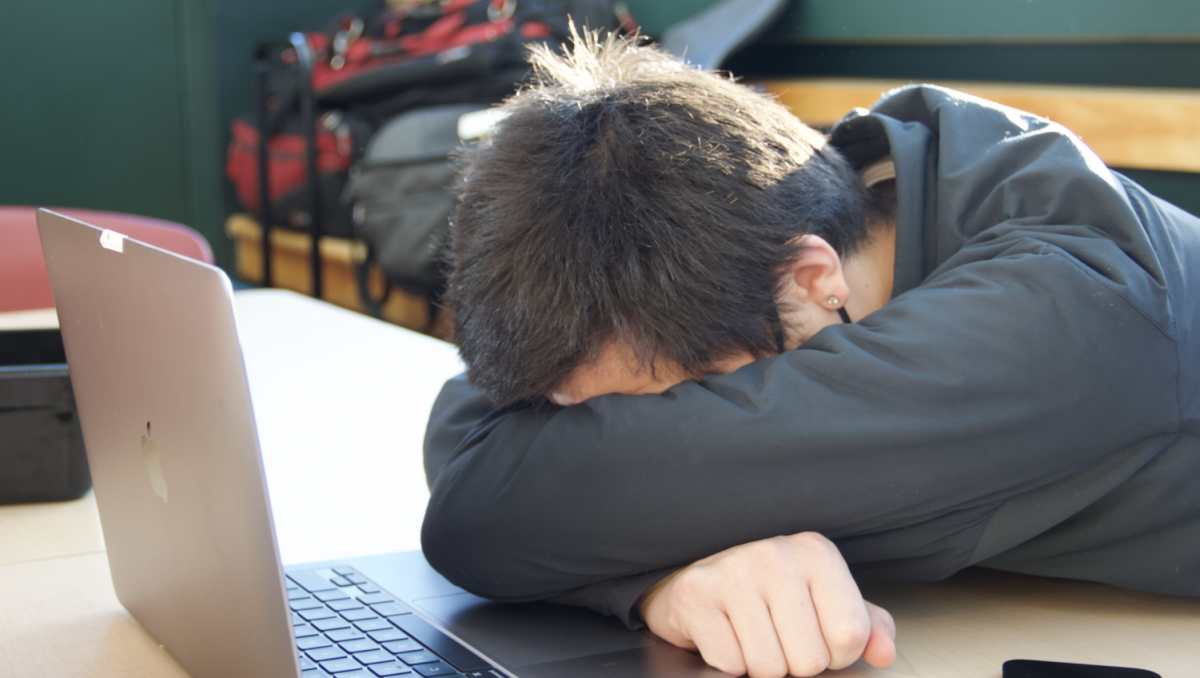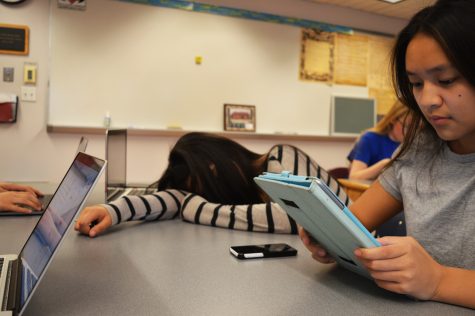Technology can be great, but sometimes students rely on it on too heavily—especially at night, with bright screens causing insufficient sleep.
According to Explore Sleep Foundation, two thirds of teens are estimated to get less than the 8-10 hours of recommended sleep, which can result in poorer performance at school.
The sleep cycle is driven by the circadian rhythm, a system programmed by sunlight.
Explore Sleep Foundation says that, “When it is bright outside, people become more alert. When it becomes dark, the body produces a hormone called melatonin that induces sleepiness.”
Here, it’s no different. According to School Nurse Beth Escobar, using technology at night, especially bedtime, is a “big problem.”
“Students will come to school tired, and I’ll ask them when they went to bed, and they’ll say they went to bed at a super late time,” Escobar said. “Then, I will ask what time they actually went to bed without an electronic and they will tell me that they never actually got off of it.”
The brightness from a screen triggers signals throughout the body, which make makes it harder to fall asleep. Human eyes are more sensitive to blue light as well. While people might argue that using technology can be relaxing, it’s a double-edged sword.
With strict school start times, it’s even more vital to fall asleep not just earlier, but also faster. Some people try to catch up on their sleep on the weekends. However, this can disrupt the circadian system.
Sleep deprivation can also result in mood changes. For people who struggle to fall asleep without technology, here are some helpful tips:
- Book: Reading a book is typically considered outdated and for many teens has been replaced with the use of technology. Still, reading is a great way to fall asleep.
- Homework: Doing homework before falling asleep can help you focus on attaining the information you have learned from the day and memorize it as you fall asleep.
- Other Activities: Listening to music and other quiet activities are also great methods to calm your mind, relax and fall asleep.























































